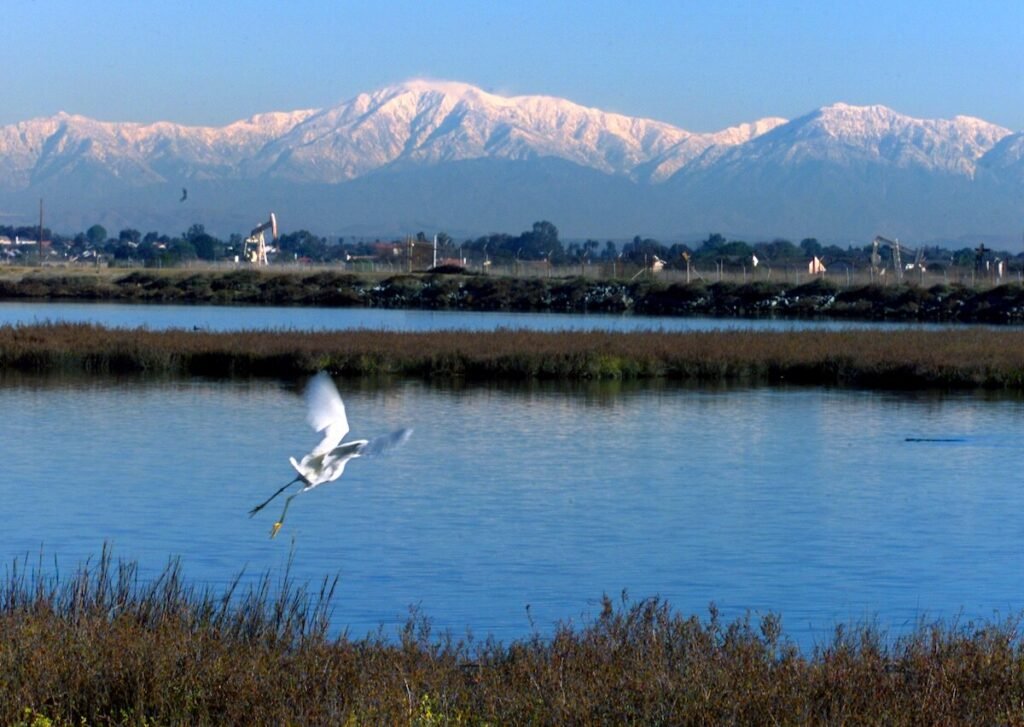Introduction
Nature reserves are designated areas established to protect specific ecosystems, species, and their habitats. These areas are usually managed by governments or non-governmental organizations, with the primary goal of maintaining biodiversity, restoring ecological balance, and providing a safe environment for wildlife to thrive and reproduce. The history of nature reserves can be traced back to the late 19th and early 20th centuries. As human activities increasingly impacted the natural environment, more countries recognized the importance of conserving natural spaces. Consequently, many nations began to establish reserves to address issues of species extinction and ecological degradation.
In this article, we will delve into the ecological value of nature reserves, their socio-economic impact, successful case studies, challenges they face, and future development prospects. By gaining a comprehensive understanding of all aspects of nature reserves, we can better appreciate the importance of protecting nature and inspire more people to get involved in this cause.
Ecological Value of Nature Reserves
Nature reserves play a crucial role in maintaining the health and balance of ecosystems. Firstly, they provide habitats for many endangered and endemic species. These areas typically host rich biodiversity, supporting various species across different ecological niches. For example, the Amazon rainforest, as a significant nature reserve, is one of the most biodiverse regions in the world, home to thousands of plant and animal species.
Secondly, nature reserves are vital for maintaining ecological balance. They help protect water sources, soil, and air quality, contributing to natural cycles. For instance, wetland reserves not only provide habitats for fish and birds but also filter water quality and prevent soil erosion. Therefore, nature reserves are essential not only for the protection of individual species but also as the foundation of overall ecosystem health.
Furthermore, nature reserves function as carbon sinks, effectively absorbing carbon dioxide and helping to mitigate global warming. By protecting forests, grasslands, and wetlands, nature reserves help reduce greenhouse gas emissions and promote sustainable development.
Socio-Economic Impact of Nature Reserves
Nature reserves are not only significant for ecosystems but also have far-reaching effects on the surrounding communities and economic development. Firstly, eco-tourism has flourished within nature reserves as a sustainable development model. Tourists visit these areas not only to enjoy unique natural landscapes but also to contribute financially to the local economy through eco-tourism, creating job opportunities. This not only boosts local residents’ income but also enhances their awareness of environmental protection.
Secondly, resource conservation within nature reserves can contribute to sustainable development for local communities. Through effective management, many areas have successfully achieved a harmonious coexistence between people and nature. For instance, in certain regions, communities can sustainably utilize natural resources through traditional agriculture or handicrafts without harming the ecosystem. This approach not only protects the natural environment but also improves local living standards.
Public engagement and education are also essential components of nature reserves. Many reserves organize volunteer activities and educational programs to raise awareness about the importance of nature conservation. This not only increases people’s environmental consciousness but also encourages them to actively participate in conservation efforts.
Successful Case Studies of Nature Reserves
Many successful nature reserves worldwide offer valuable experiences and insights. Here are a few noteworthy examples:
- Yellowstone National Park: Established in 1872 as the first national park in the United States, Yellowstone is not only a haven for natural beauty but also a model for wildlife protection. Through effective management measures, Yellowstone has successfully safeguarded many endangered species, such as gray wolves and American bison. The park’s ecological restoration projects provide valuable data for scientific research.
- Galápagos Islands: Renowned for their unique ecosystems and rich biodiversity, the Galápagos Islands began conservation efforts in the 1960s. Through stringent protection policies and sustainable tourism management, the islands have successfully preserved several endemic species, such as the Galápagos tortoise and blue-footed booby. The successful conservation in this region not only provides opportunities for scientific research but also serves as a global benchmark for environmental protection.
- Amazon Protection Areas: In response to deforestation and biodiversity loss, Brazil has established multiple protection areas in the Amazon. These reserves provide habitats for endangered species while offering sustainable development opportunities for local communities. Through eco-tourism and sustainable resource management, Amazon protection areas promote economic growth while preserving ecological integrity.
These success stories not only demonstrate the potential of nature reserves but also provide important lessons for global conservation efforts.
Challenges and Issues Faced
Despite the critical role that nature reserves play in protecting ecosystems and promoting sustainable development, they face numerous challenges. First and foremost, human activities represent the biggest threat. Urbanization, agricultural expansion, and infrastructure development often lead to habitat destruction, putting many species at risk. Additionally, illegal hunting, logging, and mining activities severely impact the ecological environment within reserves.
Climate change poses another significant threat to nature reserves. As global temperatures rise, many species’ habitats are gradually disappearing. The increasing frequency of extreme weather events, such as floods, droughts, and wildfires, further exacerbates the instability of ecosystems. Thus, addressing the challenges posed by climate change has become a critical issue in nature reserve management.
Insufficient funding and poor management are also pressing concerns. Many nature reserves lack adequate financial support, making it difficult to implement effective conservation measures. Inadequate training for management staff and insufficient community involvement further diminish the effectiveness of conservation efforts. Therefore, ensuring adequate funding and efficient management systems is essential for protecting nature.

Future Outlook and Conservation Strategies
To address the challenges faced by nature reserves, future development requires a multifaceted approach. Both governments and non-governmental organizations play vital roles in this process. First, governments should enact stricter laws and regulations to protect the ecological environment of nature reserves. Simultaneously, NGOs should actively engage in conservation efforts through public awareness campaigns, volunteer activities, and more, to enhance societal recognition of the importance of nature conservation.
The application of technology is also crucial. Modern technologies, especially remote sensing and data analysis, can help scientists monitor ecological changes within nature reserves more effectively. For instance, satellite monitoring can promptly detect illegal activities, thereby protecting ecological environments. Moreover, establishing genetic databases and biodiversity repositories can provide vital data support for species conservation.
Raising public awareness and community engagement is key to the success of nature reserves. By implementing educational programs and volunteer activities, more individuals can be encouraged to participate in conservation efforts, realizing the importance of protecting nature. Collaborating with local communities to implement sustainable development projects can also ensure that residents benefit from conservation efforts, thereby enhancing their support for protection work.
Conclusion
Nature reserves play an irreplaceable role in protecting ecological environments and promoting sustainable development. They not only provide sanctuary for biodiversity but also positively impact socio-economic development. Despite facing numerous challenges, through effective management, technological applications, and public participation, the future of nature reserves remains hopeful.
Everyone can contribute to nature conservation, ensuring that our planet continues to sustain future generations. We should all strive to be guardians of nature and work together to protect this beautiful Earth.











































